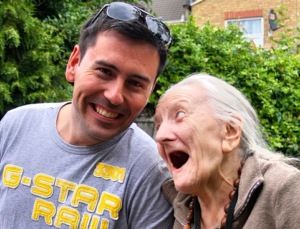News
Danish government removing mandatory doctor visits for elderly drivers
This article is more than 8 years old.
No evidence that older divers are less safe in traffic than whippersnappers

No really, Granny, you can drive (photo: AARP)
The government has decided to remove the mandatory requirement for elderly drivers to be checked by a doctor before their driving licences can be renewed.
Currently, drivers over the age of 75 must get an examination every two years to renew their licence. And anyone over the age of 80 must be examined every year to get a new licence.
“There is no scientific evidence that older people are more dangerous on the road than other age groups,” said the transport, construction and housing minister, Ole Birk Olesen.
“In fact, studies show older drivers tend to obey speed limits and take fewer risks.”
Living longer and healthier
Olesen said that older drivers enjoy having mobility and that the government wanted to help by “doing away with an outdated rule that does more harm than good”.
Thyra Frank, the minister for the elderly, welcomed the change.
“We should be pleased that Danes are living longer and healthier lives,” she said.
“It makes perfect sense that we remove outdated age requirements for licence renewals and show that we trust the ability of the elderly in traffic.”
The development is good news for a number of MPs, not least Bertel Haarder, the former culture minister, who is turning 73 later this year, and another former culture minister, Marianne Jelved, who is turning 74.










































